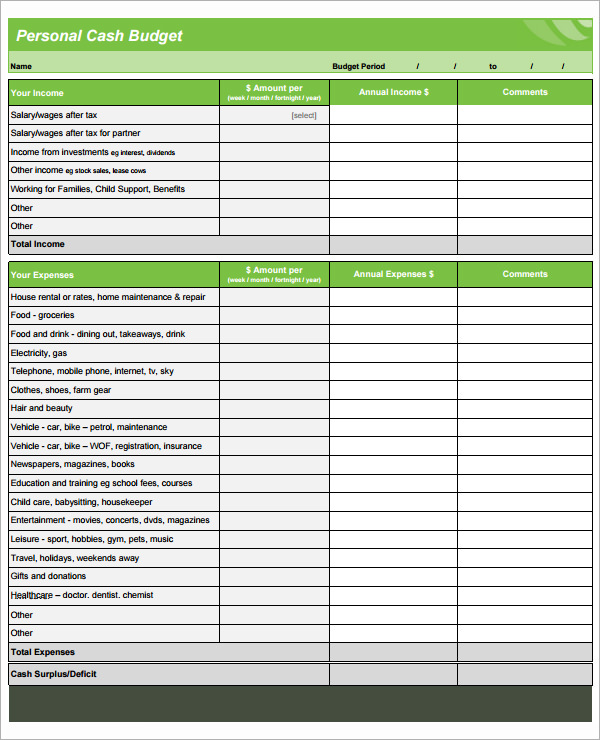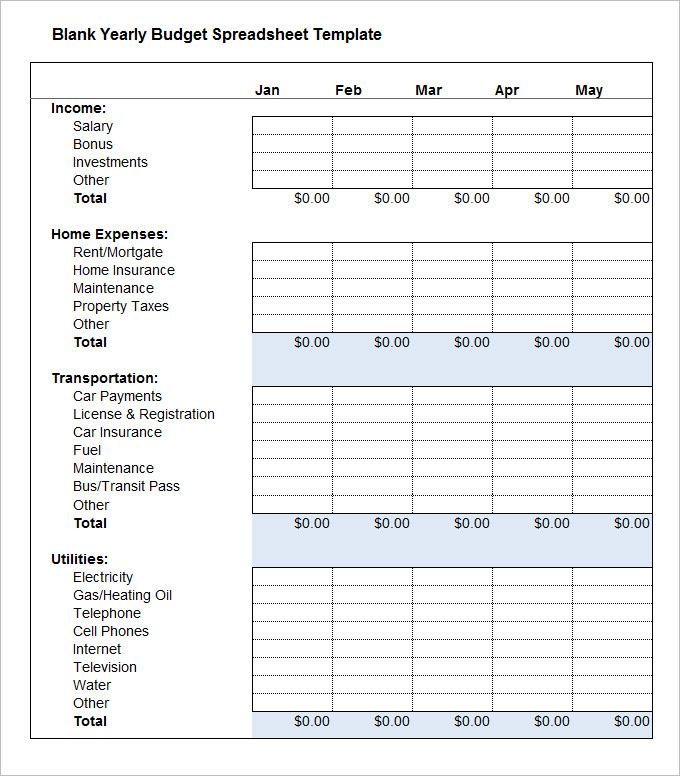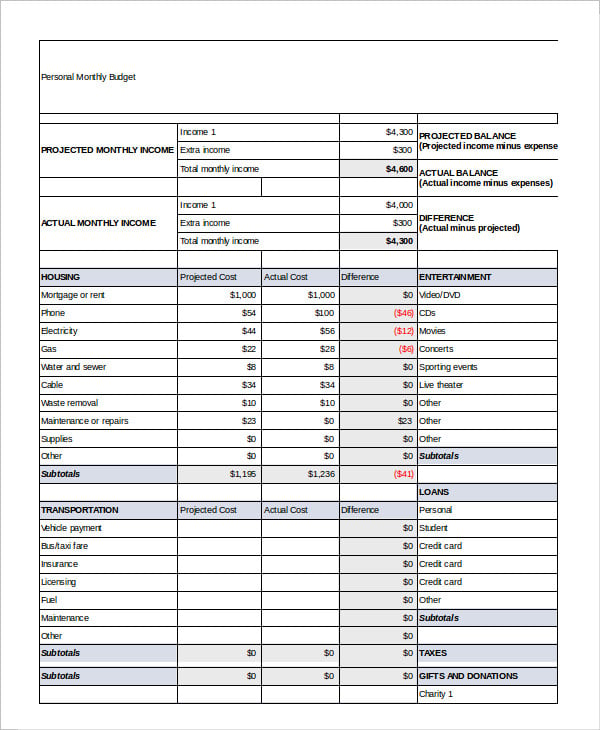
These amounts can sometimes seem out of reach. Your emergency fund should provide you with enough money to cover your living expenses for 3 to 6 months.

To deal with unexpected situations, create an emergency fund. saving to have children, to go to school or to retire.saving to buy a home, a car or booking a trip.Make saving for those goals part of your budget. Identify your short-term and long-term goals. Take these simple steps before you make your budget. What to consider before you start a budget have more money for things that are important to you.are planning for a major purchase or a life event.feel like you’re not in control of your finances.It guides your spending to help you reach your financial goals. Making a budget can help you balance your income with your savings and expenses. It helps you figure out how much money you get, spend and save. A budget is a plan that helps you manage your money.
#Sample personal budget template software
^ "The 8 Best Personal Finance Software Options of 2022".^ "Cash Envelope Budgets for the Modern Age: Digital Zero-Based Budgeting".^ "5 Essential Steps to Create a Successful Personal Budget".^ a b c d "A List of Different Budgeting Techniques to Suit a Variety of Tastes".^ "7 Reasons Why You Should Budget Your Money".^ a b "How to Create a Budget in 6 Simple Steps".^ "Key Differences in Household Budgeting vs.Some of them can be used for budgeting and expense tracking, others mainly for one's investment porftolio. Several personal finance softwares and mobile apps have been developed to help people with managing their money. Zero-based budgeting involves dividing income into different expense categories, ensuring that all funds have been assigned a purpose, and at the end of the month there is a zero balance in the budget. In zero-based budgeting, all of one's net income must be allocated ahead of spending. Any time they want to buy something in one of the categories, they only take the designated envelope so that they cannot overspend. groceries), withdraw the cash allocated for each category, and put them into envelopes.

They need to allocate their net income into categories (e.g. Envelope method (cash-only budgeting) Personal budget in an Excel sheetįor this method, people need to use cash instead of debit or credit cards. They then divide the amount of money needed by the timeline to calculate how much they should save each month. This method is a variation of the pay yourself first budget, in which people create multiple savings accounts, each for one specific goal (such as a vacation or a new car), and each with an amount of money that should be reached by a specific date. The most important part of this method is to put one's savings apart before spending on anything else. They can also choose a 70/30, 60/40, or 50/50 budget for more savings.

In the pay yourself first budget people first save at least 20% of their net income, and then freely spend the remaining 80%. Pay yourself first method (80/20 budget) 50% of one's net income then goes towards needs, 30% towards wants, and 20% towards savings. The 50/30/20 budget is a simple plan that sorts personal expenses into three categories: "needs" ( basic necessities), "wants", and savings. These steps can help individuals gain better control over their finances and achieve their financial goals. This method involves assessing one's financial situation, setting realistic financial goals, allocating income, tracking spending and adjusting the budget, and regularly reviewing and revising the budget.

There exist many methods of budgeting to help people do this. In the most basic form of creating a personal budget the person needs to calculate their net income, track their spending over a set period of time, set goals based on the information previously gathered, make a plan to achieve these goals, and adjust their spending based on the plan. People who budget their money are less likely to obtain large debts, and are more likely to be able to lead comfortable retired lifes and to be prepared for emergencies. Having a budget can help people feel more in control of their finances and make it easier for them to not overspend and to save money. Personal budgets are usually created to help an individual or a household of people to control their spending and achieve their financial goals. A personal budget (for the budget of one person) or household budget (for the budget of one or more person living in the same dwelling) is a plan for the coordination of the resources (income) and expenses of an individual or a household.


 0 kommentar(er)
0 kommentar(er)
